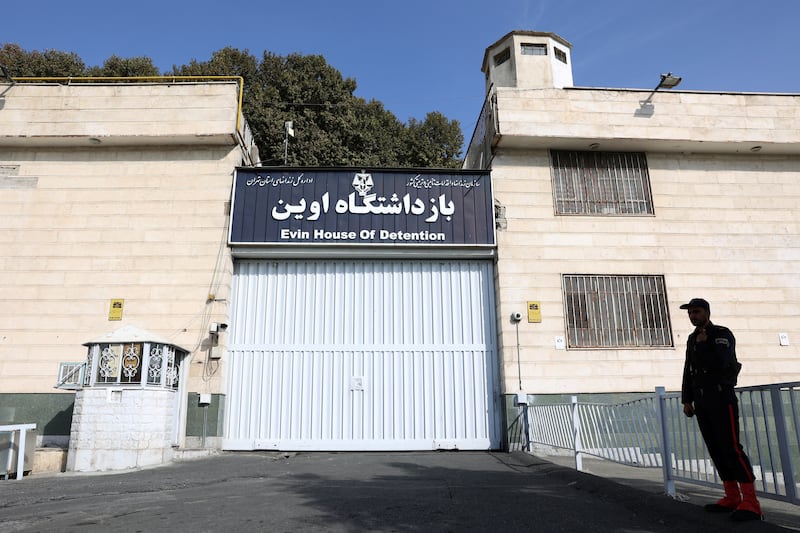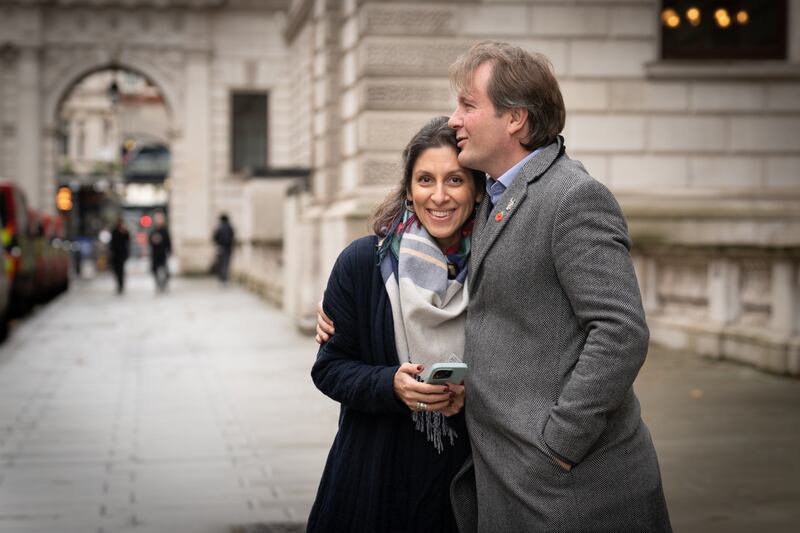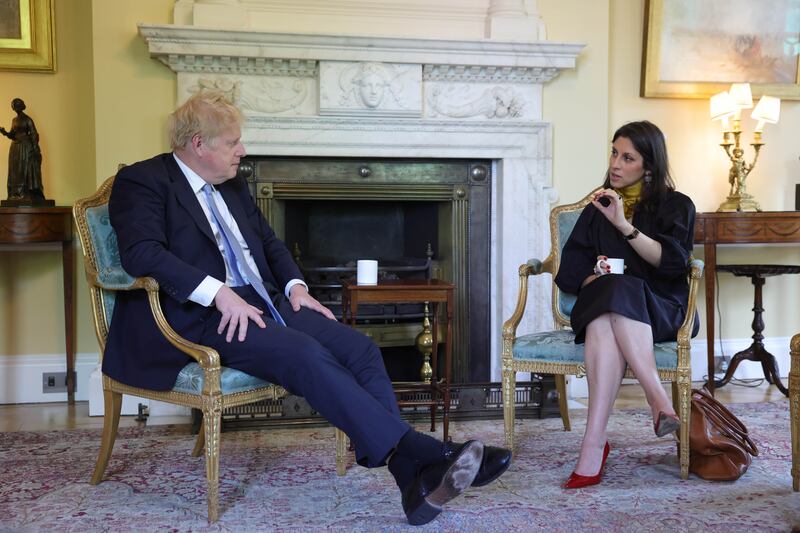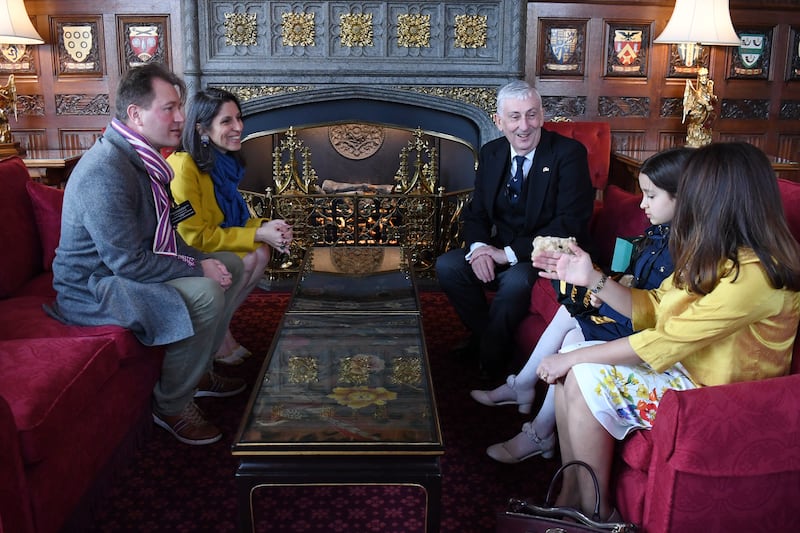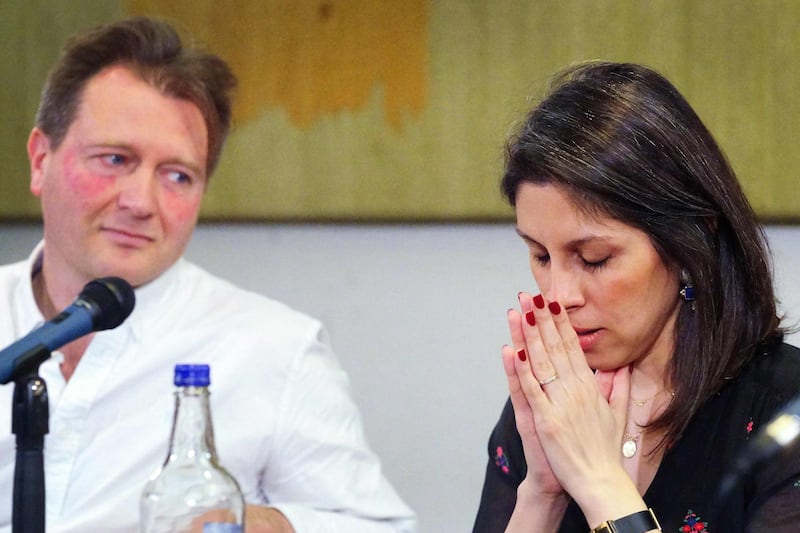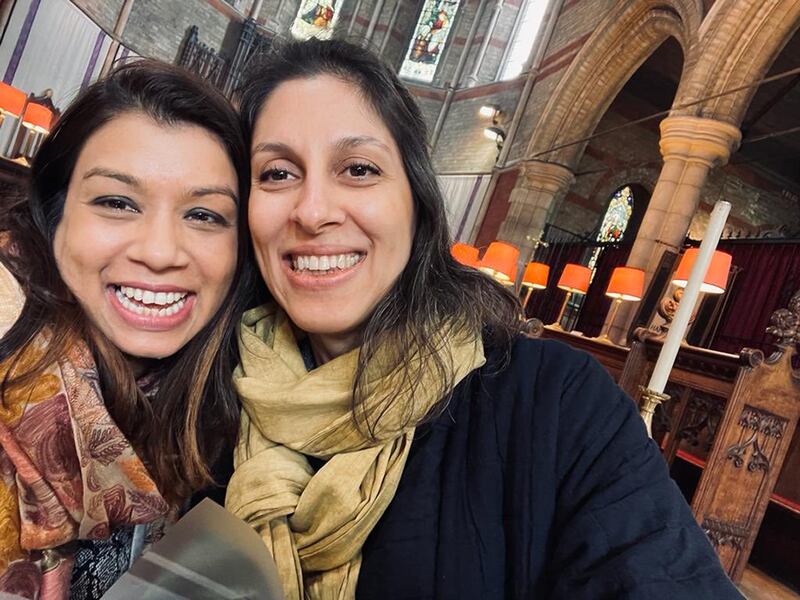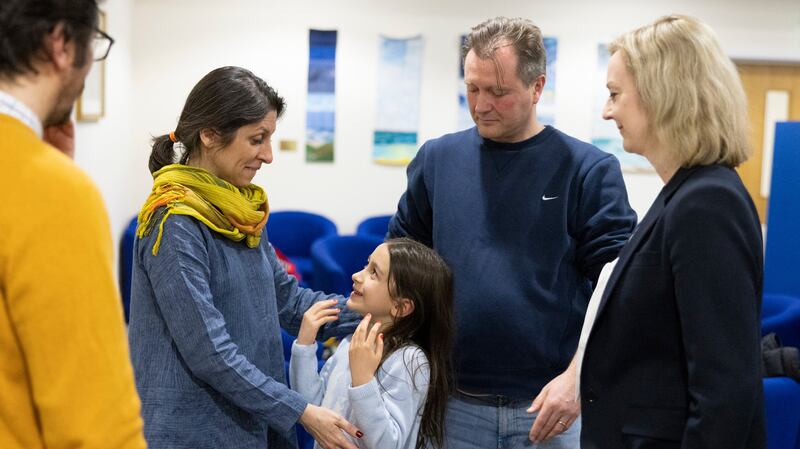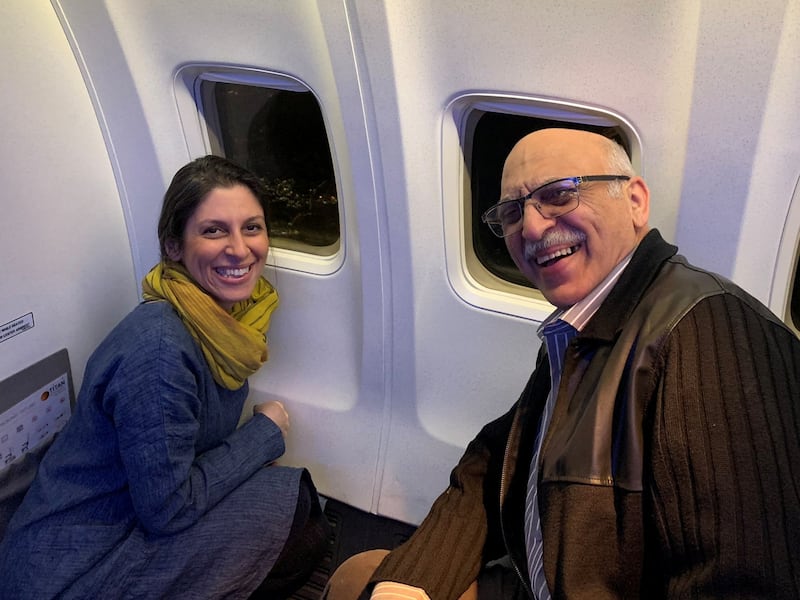A Swedish citizen believed to be an EU diplomat has been detained in Iran for more than 500 days, it was reported on Monday.
The man, who is in his thirties, was arrested in April 2022 and has been “arbitrarily deprived of his freedom”, a spokeswoman for Sweden's Foreign Ministry told The National.
The man was identified as EU official Johan Floderus by The New York Times, which first reported on the case.
He was a member of the EU's diplomatic corps who visited Iran on official business, but was arrested while travelling as a tourist, it reported.
The Swedish government did not confirm his name.
The ministry said it was “working very intensively on the case” and kept close contact with the EU.
Officials are “in contact with the family on practically a daily basis”, the ministry said.
“The Swedish citizen has been arbitrarily deprived of his freedom and should therefore be released immediately. This has been conveyed to the Iranian authorities,” it said.
It said it was not able to provide further details on concerns about “complicating the handling of the case”.
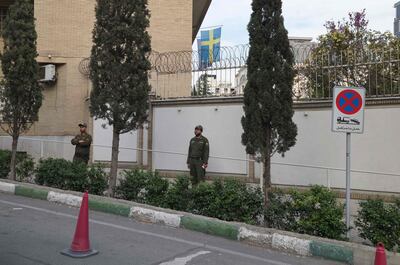
Iranian state media reported the arrest of a Swedish citizen on espionage charges last year. It claimed he was in contact with other suspects under surveillance in Iran.
The man is reportedly being held in Evin prison, which held foreign citizens such as Nazanin Zaghari-Ratcliffe and Anoosheh Ashoori.
'Staying silent is criminally negligent'
Richard Ratcliffe, Ms Zaghari-Ratcliffe's husband, described the detention of Mr Floderus as a “shocking case”.
Speaking to The National, he said the EU and the Swedish government appear to have adopted a line similar to the one taken by the UK after his wife was arrested in Tehran in 2016 – silence.
After being advised by the Foreign Office in London to keep quiet, Mr Ratcliffe decided to go public after a month of no progress on his wife's situation.
In retrospect, he believes keeping silent would not have achieved anything.
“There’s no logic for keeping quiet,” he said.
“There’s no way that the Swedish government and EU’s decision to keep quiet about Johan’s case protects him but it protects others.
“It’s criminally negligent.
“Governments like to let on that there is this big hinterland of secret knowledge but I would be deeply sceptical of that.”
“Hostage-taking is a game of cat-and-mouse, and Iran wants to sort out other issues.”
He cited the case of Habib Chaab, a Swedish-Iranian dual citizen who was executed in May 2023. He was convicted of an attack in 2018 that killed dozens of people at a military parade in southern Iran.
“Since Johan was taken, a Swedish citizen has been executed,” Mr Ratcliffe said.
“I think there’s a real need to rethink the international approach to hostage taking,” he added, stressing that there is “no deterrent” in the current policy.
“Hostage diplomacy is growing. Iran’s attitude seems to be that if we get more aggressive we will get what we want.”
Mr Ratcliffe offered advice to Mr Floderus’ family, whom he said “will be terrified”.
“My friend said to me, it’s a hostage case – you don’t get out you get through. Everyone else wants to be the carrot, you’ve got to be the stick. You have to remind the government that this is shameful and intolerable.
“I would say follow your gut. There is no road map and everyone who does this is doing it for the first time. Each case is different.
“Just knowing that you are battling for him and knowing that people care will give him faith in human being and in the world.”
Jason Brodsky, policy director of the United Against Nuclear Iran think tank, said that while it was not unprecedented for Iran to hold a diplomat, it would mark a “serious escalation” given recent cases have typically concerned dual nationals, academics or business travellers.
He said it was an “indictment of the EU's Iran policy to keep it under wraps for 500 days” while the bloc was trying to revive nuclear diplomacy.
“This necessitates a transatlantic policy to deter hostage taking and a rethink of the EU's Iran policy,” he said.
Western citizens have repeatedly been detained in Iran in what is widely considered to be as a hostage-taking effort for political purposes.
Relations between Iran and Sweden have soured over the execution of Mr Chaab and the jailing in Sweden of convicted Iranian war criminal Hamid Nouri.
“We are aware and have been following very closely the case of a Swedish national detained in Iran,” the European Commission said.
“We are in a very close touch with the Swedish authorities who have the consular responsibility.
“We have no further information to disclose in the interest and safety of the individual concerned.
“This case has also to be seen in the context of the growing number of arbitrary detentions involving EU citizens. We have used and will continue to use every opportunity to raise the issue with the Iranian authorities to achieve – in close co-operation with the member states involved – the release of all arbitrarily detained EU citizens.”
Nazanin Zaghari-Ratcliffe – in pictures
Tehran has used detainees to seek concessions as it spars with western countries over its nuclear activities, development of ballistic missiles, human rights record and efforts to spread influence in the Middle East.
Ms Zaghari-Ratcliffe’s release coincided with the UK settling a historic £400 million ($482 million) debt to Iran.
Last month’s release of four Americans from Evin prison came after $6 billion of Iranian funds were unfrozen in South Korea, an apparent deal that caused concern from former detainees.
British-Australian academic Kylie Moore-Gilbert said it amounted to a “payment of ransom”, while former death row inmate Ana Diamond said she felt infuriated.
